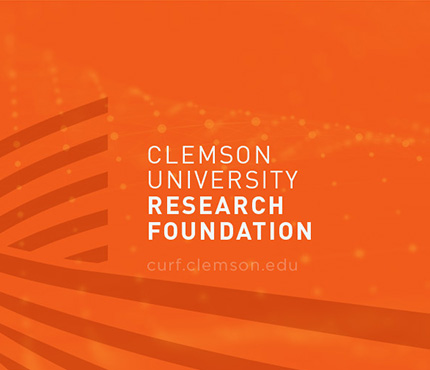The Clemson University Research Foundation is excited to announce the 2023 awardees for the Technology Maturation Fund. The Technology Maturation Fund is a program managed by CURF and, unlike any other source of funding available to Clemson faculty, the sole purpose of this funding is to support the next critical research steps that will significantly increase the likelihood of commercializing Clemson intellectual property. The fund is open to any Clemson University faculty member who has interacted with CURF via the invention disclosure and patenting or copyright process for the maturation of their intellectual property.
This year, we were proud to award funding to six Clemson University inventors. Below are those who were awarded.
Angela Alexander-Bryant from the Department of Bioengineering received funding for her research on the “Advancement of Novel Peptides for Nucleic Acid Delivery.” These novel fusogenic peptides have the ability to be efficiently be delivered into ovarian cancer cells and enable the endosomal escape of therapeutics.
Julian Brinkley from the School of Computing received funding for his “Accessibility Research Platform” and “MyUI.AI.” Accessibility Research Platform is a web-based research tool that connects individuals with disabilities with the research community. MyUI.AI is a cloud-based system that leverages artificial intelligence to adapt the digital interfaces of consumer appliances, kiosks, and nearly any compatible IOT device, to the specific interaction needs of people with disabilities.
Laine Mears from the Department of Automotive Engineering received funding for his “Purposeful Failure Method.” This failure methodology generates labeled relevant datasets via SPFT simulation and utilizes machine learning to not only improve prescriptive equipment maintenance, but also pinpoint equipment failure modes through real-time data collection from in-line equipment.
Apparao Rao from the Department of Physics and Astronomy received funding for his “Processing Agricultural Waste into Activated Carbon” technology” that can transform agricultural wheat byproducts into value-added carbon products.
Rhett Smith from the Department of Chemistry received funding for his “Scalability and ASTM/ISO Testing of Sustainable Cement Products” technologies. These inventions improve FFA-based biomaterials in coatings and construction composites.
Daniel Whitehead from the Department of Chemistry will receive funding for his “Polyamine-cellulose nanocrystals for the removal of dissolved metals in rendered fats” process that uses poly(amine) modified cellulose nanocrystals and water to significantly reduce the metal/inorganic burden in rendered fat samples.












